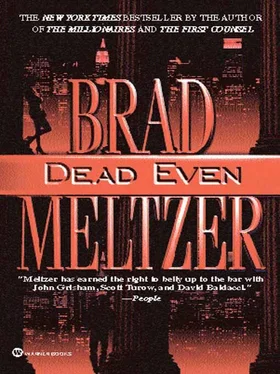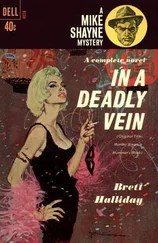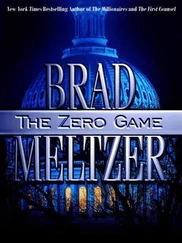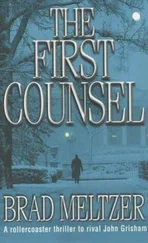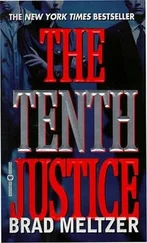Wayne looked straight at Jared. “That’s the kind of attorney we need here. Being smart is fine; being honest is fine; even being aggressive is fine. But to bring in real business, the most important quality you can have is the confidence in your ability to win. Clients want to follow success – if they can smell the confidence on you, they’ll have confidence in you. And if they have that confidence, they’ll always trust you, and they’ll never argue with your decisions.
“That’s the problem you had this afternoon, Jared,” Wayne continued. “If Rose had complete confidence in you, he would have written that check with a smile. Instead, he’s threatening to leave, taking his three-million-dollar account with him. Now, if you were bringing in new clients, we’d care far less about losing Rose’s business. But looking at your records, it appears that client development is hardly your strong suit.”
“I know,” Jared said. “But I’m trying my best to-”
“Getting new clients requires more than just your best. It requires you to convince people to trust you with their lives. If we don’t have that trust, we can’t keep old clients, and we certainly can’t attract new ones. And if we can’t attract new ones, we can’t grow as a firm. And if we can’t grow as a firm, well, making partner becomes that much more difficult. Do you see what I’m trying to say, Jared?”
“Absolutely, sir,” Jared said, struggling to sound enthusiastic. “But you don’t have to worry. I know the value of old clients, I know the value of new clients, and without question, I know the value of being a partner in this firm.”
“Wonderful,” Wayne said. “Then I’m glad we had this talk.”
At ECAB, Sara, Conrad, and Guff headed straight to an office in the back of the room. Sara sat down behind the desk.
“Okay,” Conrad said. “Ask her the question.”
“A man pretending to have occult powers promises a sweet little old lady that he can exorcise the evil spirits affecting her little kitty named Shirley,” Guff said. “What can you get him for?”
“Huh?”
“The crime,” Guff explained. “What crime can you charge the evil-spirit guy with?”
As Sara looked down at the New York statute book on the desk, Conrad said, “Don’t use the book. Use what you know.”
“I’m not sure,” Sara said. “I guess it would be fraud.”
“You guess?” Conrad asked. “You can’t just guess. You’re an assistant district attorney. When a cop makes an arrest, he comes to you with the paperwork, and you’re the one who decides what the crime is. That means you have to know the elements of every crime, as well as the statutes.”
“No, you’re definitely right,” Sara said. “I should’ve-”
“Don’t kick yourself about it. Just keep going – use the book and find the crime.”
Opening the book, Sara flipped through its pages. Speed-reading through New York’s numerous offenses, she searched for the answer to Guff’s hypothetical question. For almost three minutes, Conrad and Guff stared at her, not saying a word. Finally, she looked up. “Fortune-telling.”
“Explain,” Conrad said.
Sara read from the book. “In New York, if you pretend to use occult powers to exorcise or affect evil spirits, you can be charged with fortune-telling.”
“And the defense is?”
“You can do it if it’s for the purpose of entertainment or amusement,” she said, wiping her brow.
“Exactly,” Conrad said. “Which is why we haven’t busted the Great Zamboni and all the rest of them.”
“What does this have to do with my burglary case?”
“Are you sure it’s burglary?” Conrad countered. “Maybe it’s breaking and entering. Maybe it’s larceny. And what about robbery? The only way to find out is by looking at the individual facts. Knowing the facts tells you the crime. For example, if you take someone’s money and then hit them, it’s a robbery. But if you take their money, throw it back at them when they scream, and then hit them to shut them up, it’s no longer a robbery because you don’t have their property. The key is to get all the details.”
“Think of it as a movie,” Guff said. “Break it down frame by frame. If you’re missing a frame, you still don’t have the complete picture.”
“Okay,” Sara said, refusing to be overwhelmed. “I can do this.” She read from the complaint report: “After receiving a radio call reporting a break-in and describing the defendant, the officer picked up the defendant two blocks from the burglary. When they returned to 201 East Eighty-second Street, the victim identified the defendant as the burglar. After searching defendant’s pockets, a diamond Ebel watch, a sterling silver golf ball, and four hundred and seventeen dollars were recovered, all of them belonging to the victim.”
“Now,” Conrad said, “that gives you about three percent of what actually happened.”
“Why?” Sara asked, confused.
“Because of the way arrests work – everyone’s trying to make himself look great.” Leaning forward, Conrad grabbed the complaint report from Sara’s hands. “You can see it right here: The cop uses the word ‘burglary.’ It’s not the cop’s job to identify the crime that’s supposed to be charged. That’s your job. And how do we know the description on the radio matched what Kozlow was wearing? And who reported the burglary? Was it the victim or was it an anonymous tip? If it’s anonymous-”
“The judge may exclude the evidence if the source can’t be verified,” Sara said. “So you’re saying I need to talk to the cop.”
“Exactly,” Conrad answered. He pointed to the tiny video camera on top of the ECAB computer. “Face-to-face on the videophone.”
“That’s pretty high-tech,” Sara said, moving her head close to the camera.
“I actually think it’s terrible,” Conrad said, “but I won’t get into it.”
“Well, I think it’s fantastic,” Guff added. “Things like this bring us one step closer to the Jetsons and their magical animated world of the future.”
Ignoring Guff, Sara said, “Okay, so I call the cop up and get all the details. Then when I’m done with that, I write up the official complaint and start all over again.”
“What do you mean start all over again ?”
“I mean, if I’m dead set on keeping this job, I’m going to need more than one measly case, don’t you think?”
“I told you she was hungry,” Guff said.
“Without question, you should grab every case you can get your hands on,” Conrad said to Sara. “But don’t forget one thing: As long as Victor’s supervising, he’s not going to give you anything but throwaways. You’re going to be prosecuting every pickpocket in Manhattan.”
“Is there any way around that?”
“Considering you already pissed off Evelyn, I doubt it.”
“Okay. No big deal. That’s why they call it paying your dues,” Sara said, trying to sound positive. “Whatever it is, I’m ready to do it.”
“Keep up that attitude,” Conrad said. “But when you’re done catching cases, make sure you go home and rest for a while. The arraignment’s going to be at around eleven o’clock tonight.”
“Tonight?” Sara asked. “I didn’t know arraignments went on that late.”
“This is New York City,” Conrad said. “Home of sixteen million people, all of whom hate each other. Arraignments here are open around the clock.”
“I’ll be there.” As she picked up the phone and dialed Officer Michael McCabe’s telephone number, Conrad got out of his seat. “Where’re you going?” Sara asked.
“I have my own work to do. I’ll see you in arraignments – it’s on the first floor of this building. Get there early to be safe.”
Читать дальше
